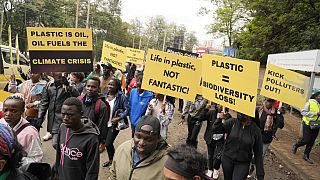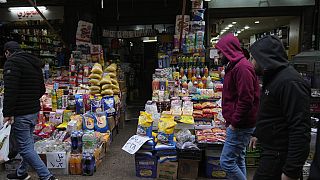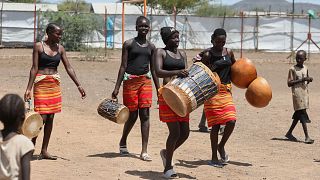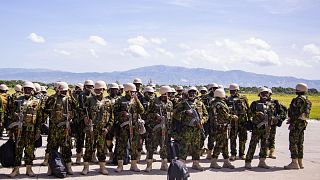Kenya
Negotiators and observers from around the world are meeting in Canada until April 29th to craft a treaty to stop the rapidly escalating problem of plastic pollution.
Thousands of miles from the conference Shaw Center in Ottawa, Kenyans battle every day to cope with the volume of plastic waste which ends up in their country.
Tackling the problem in Nairobi, Kenya, are workers at the Pura Terra recycling plant.
"Being the only company in the area we realize we cannot be able to sort out all the plastics that are coming in. So from the meeting that is happening in Canada we are expecting one thing that they will come up with policies that will help us, to be able, 100% of the plastics that is being produced will be recycled 100%."
The company's website says 2000 tonnes of waste is generated daily in Kenya and it estimates that by 2030 there will be an estimated 5.5 million tonnes of waste every year.
In March 2022, 175 nations agreed to make the first legally-binding treaty on plastics pollution, including in the oceans, by the end of 2024.
The weeklong conference in Canada is the fourth session of the Intergovernmental Negotiating Committee (INC).
Its chair insisted on the stakes: "Our collective responsibility and duty in this INC process is to deliver a treaty that reflects (the) urgency of ending (the) plastic pollution crisis and that meets the expectations of citizens in all of our countries calling for a change," Luis Vayas Valdivieso said.
Negotiators in Ottawa must streamline the existing treaty draft and decide its scope: whether it will focus on human health and the environment, whether it will limit the actual production of plastic, and whether it restrict some chemicals used in plastics.
Petrochimicals and oil production
These are elements that a self-named “high ambition coalition” of countries want to see.
Alternatively, the agreement could have a more limited scope and focus on plastic waste and greater recycling, as some of the plastic-producing and oil and gas exporters want.
Azarius Karanja who leads on issues on the environment for a lays downs what he believes are priorities.
"Ideally we would want to see a focus on solutions such as scaling for solutions for re-use and refill," he says.
Arguing countries in the global south, including African nations, bear the greatest burden of the challenges presented by plastics Karanja expects concerted action will be stressed.
"As Africans I think our expectations from INC-4 is that for one, we will see concerted actions across the plastics value chain, because we understand that number one it is not a local issue, but a global issue. The value chain spans the entire globe and so we are hoping that players across the globe will come together and be able to come up with a resolution that adequately addresses the issue of plastic use."
To address the problem of plastic pollution many of the Ottawa delegates insist the conference should cut out the use of specific chemicals. Azarius Karanja shares this view: "We would want to see elimination of problematic chemicals that go into plastic production. Given a lot of these chemicals are based on petrochemicals, they're closely linked to the production of oil so we would want to see a shift towards more environmentally friendly."











00:28
Nairobi hawker shot at close range by police declared brain dead
00:48
Death toll in Kenyan anti-government protests rises to 16, says rights group
01:07
Kenya prepares for first anniversary of Finance Bill protests
01:52
UN's crucial humanitarian aid work faces a clouded future amid cuts in funds
02:00
Refugees in Kenyan camp face hunger after USAID funding freeze
01:00
Pix of the Day: June 19, 2025